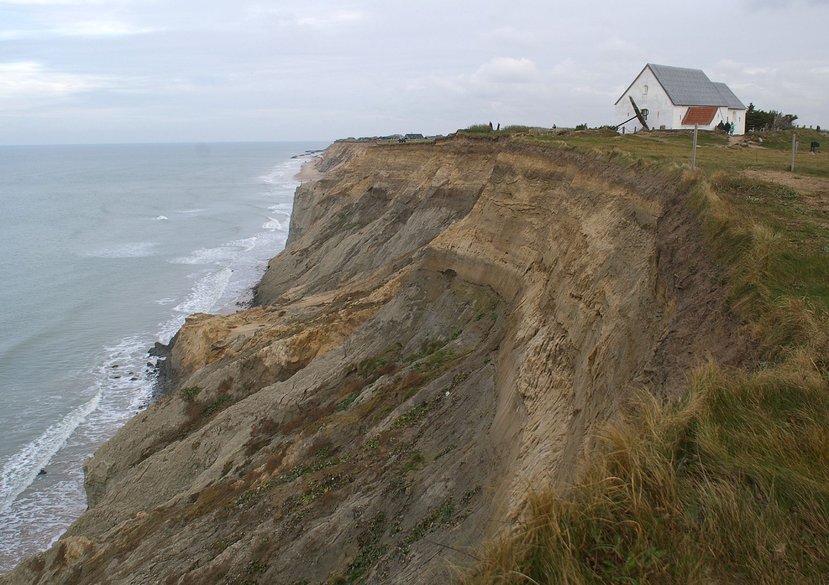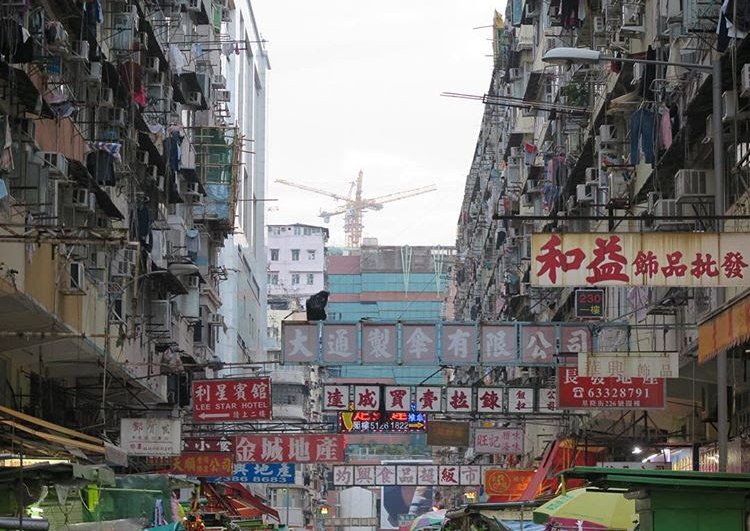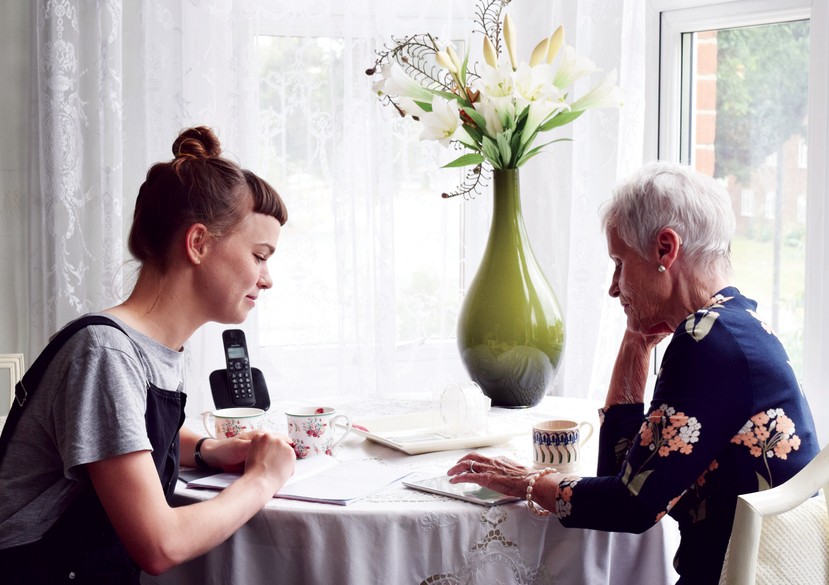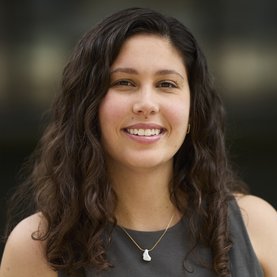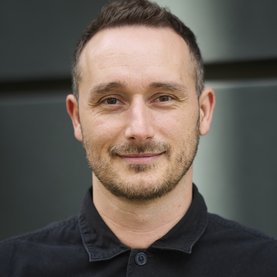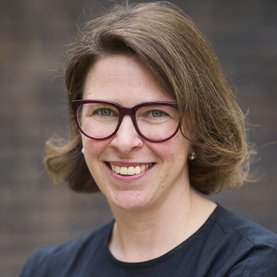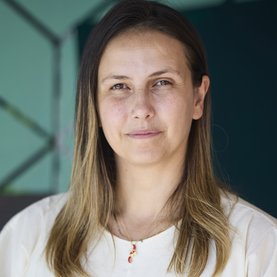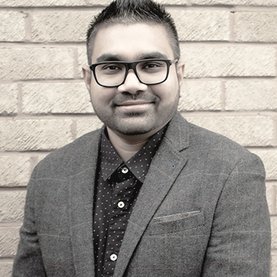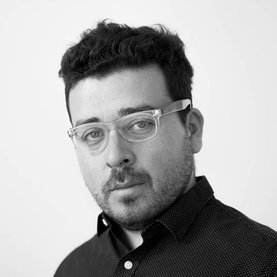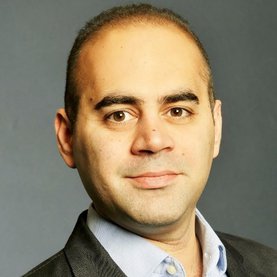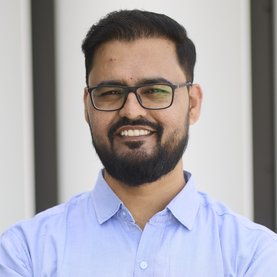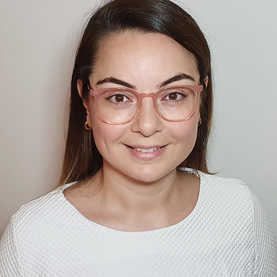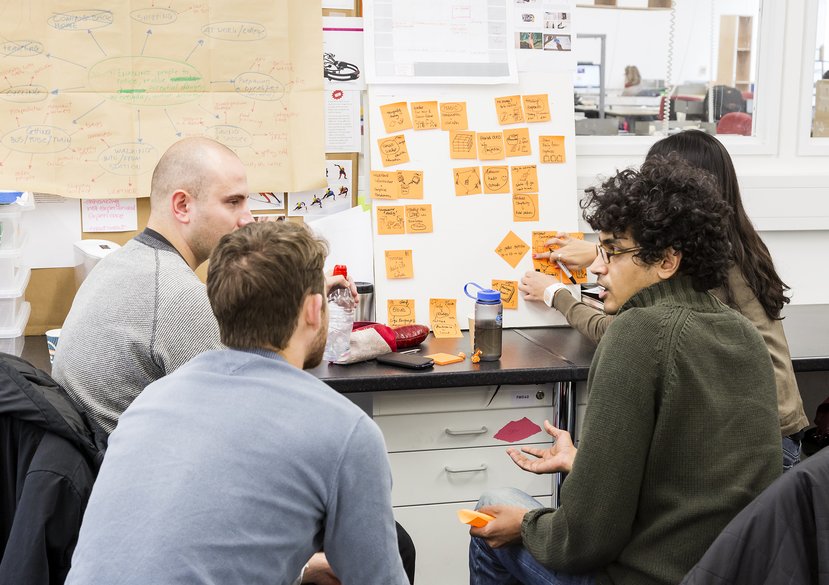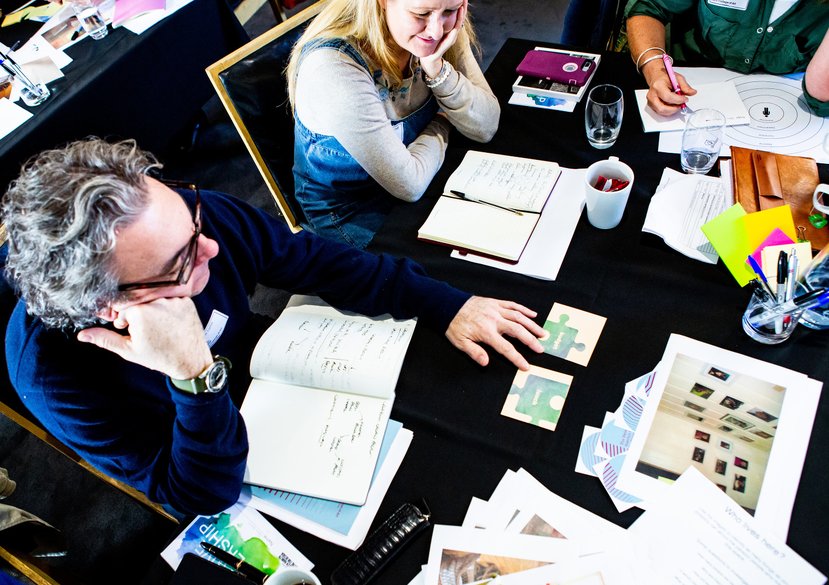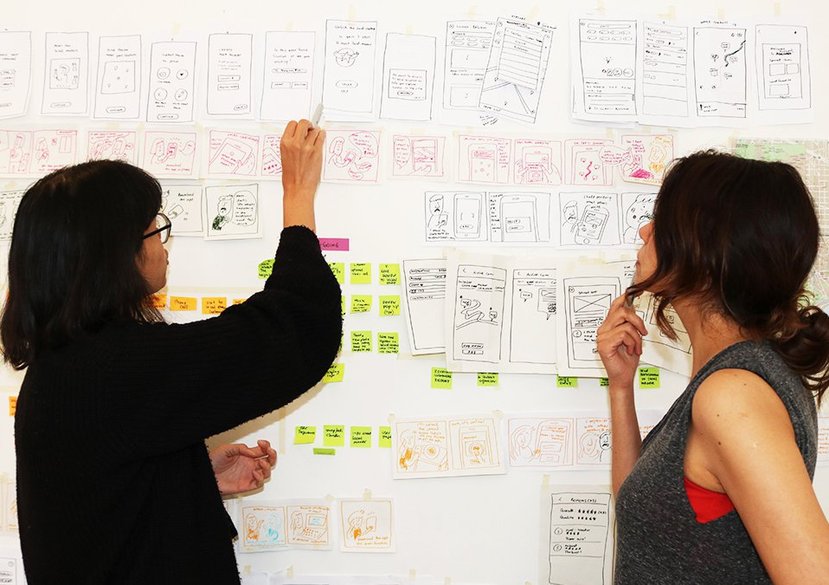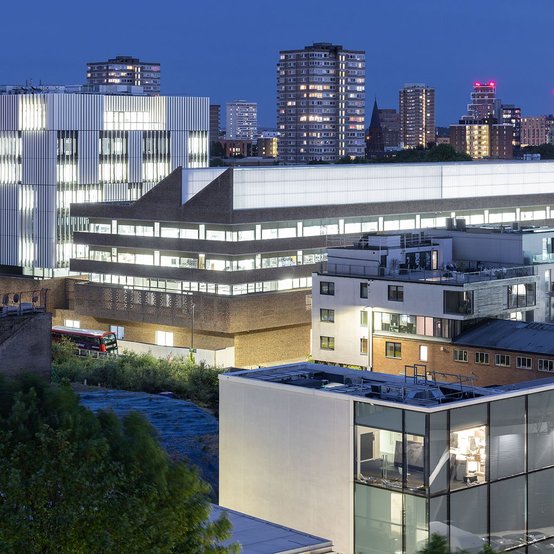
Overview
Looking at the big picture
Key details
- 180 credits
- 1 (FT) / 2 (PT) year programme
- Full-time or part-time study
School or Centre
Next open event
- 6 May 2025
- Join next Online Q&A Week
Round 2 application deadline
- 30 Jun 2025
Explore design futures to address challenges across scales
- Benefit from our flexible programme structure, working with subject experts from different backgrounds
- Immerse yourself in core units about design research, complex systems and envisioning futures before developing your independent research project
- Enjoy a wide range of electives in subjects such as design resilience, design ethics and design innovation alongside electives from across the College
- Develop professional and entrepreneurial skills to prepare you for real-world opportunities
Engage individuals in debate, develop alternative strategies and change minds and behaviours as a design futures practitioner. Working individually and with peers, we’ll encourage you to explore how design futures can address complex social and environmental challenges.
On the RCA Design Futures MDes, you’ll develop a transdisciplinary approach to your design practice and strengthen your research methodology so you can refine your thinking. You might come to this programme with an established design practice that you want to push further; or from outside traditional design fields, but with a desire to integrate design tools into your work.
Making the intangible tangible
Become involved with projects that open new ways of thinking about design. Start bold conversations about the future. Embrace uncertainty and complexity. You’ll learn how to help people visualise alternatives and to make a positive response towards a more sustainable future.
Through your independent research project, you can focus on social and environmental challenges that matter to you. You’ll also develop your entrepreneurial skills for professional contexts and strategies for taking your ideas forward.
The Design Futures MDes can be studied as a full-time or a part-time programme.
Catch the replays from our latest online Open Day.
Gallery
Staff
Facilities
The RCA has facilities at Kensington, Battersea and White City. MDes students will benefit from being supervised by world-leading academics at the forefront of research and practice.
View all facilitiesYou will also have access to College-wide workshops on an individually planned and negotiated basis. Please note, this programme isn’t for those who want to try out a range of bespoke technical resources.
Our alumni
Our alumni form an international network of creative individuals who have shaped and continue to shape the world. Click on each name to find out more.
Where will the RCA take you?What you'll study
Flexibility and choice are at the heart of the offer, with a combination of Core and Elective units enabling you to create a bespoke programme of studies that best suits your approach, context and interests.
What you'll cover
How you'll learn
Units are delivered through a combination of lectures, seminars, and group tutorials, including in-person and online delivery. Concurrent units will be delivered through burst learning, with intense on-campus activity in blocks to provide a more sequential experience of the units. Between on-campus activity, online seminars, group tutorials and peer-led asynchronous activities support and structure your independent study.
You will be encouraged to engage with your network of peers and to collectively contribute to common learning resources, student-led seminars and peer critique. You are encouraged to treat your peers as critical friends, and to engage in critique in ways that are informed by your existing experiences of industry and practice. By participating in peer critiques, you will receive constructive feedback and learn to critique your work more effectively.
Opportunities for formative feedback are used to support and structure your learning. Peer and tutor critiques form an important part of the teaching, and occur in every unit.
Programme structure
Term 1
You'll begin by taking Interdisciplinary Research Methodologies, which provides a toolkit for tackling diverse and challenging issues delivered through a series of ‘methods sprints’ that connect theory to creative practice.
You'll also take Complex Systems which introduces a range of concepts allowing designers to build familiarity with leverage points, wicked problems, causal loops, theories of change and entanglement.
During this term you'll also choose one one school-wide elective and one college-wide elective.
Term 2
In term two you take Envisioning Futures, which combines futures methods with advanced digital and analogue envisioning methods bringing to life near and deep futures prospecting from a multi-species perspective.
You'll start to plan your Individual Research Project (IRP) by developing a research proposal to demonstrate the need for research on your chosen topic, articulate any gaps of knowledge and how your research proposal intends to address this.
During this term you'll also choose one school-wide elective and one College-wide elective.
Term 3
The final term is devoted to the development and realisation of your Independent Research Project (IRP).
The IRP is an opportunity for you to propose and realise a body of work that addresses the key ambitions of your research and professional practice. You will draw on what you have learnt on the programme to devise a project which might be individual or collaborative. You will also be encouraged and supported to identify opportunities for the professional public dissemination of your work, and to exploit your project for career progression in the Design field. These opportunities will be specific to you and the nature of the professional practice area that you engage with during the unit. Your project will be supported through individual and group tutorials and opportunities to share your research developments through seminars and forums.
This MA is delivered over 45 weeks (full time) and 90 weeks (part time).
Electives
All students will select elective units to determine their own journey through the programme, choosing from a range of electives that are available across all Schools and campuses, and online.
Term 1 & 2
- School of Design Electives are four sets of electives divided into A (term 1) and B (term 2). There is no prerequisite for B electives.
- RCA Cross-College Electives will comprise electives from all RCA Schools (including the School of Design).
Depending on demand and availability, not all electives will be available. Students will be asked for ranked preference and allocated to electives based on those preferences.
Programme duration
The MDes is delivered over 45 weeks (full time) and 90 weeks (part time). There are different periods of intensity in the programme. The first month is an intensive block for both full and part time students, then you will be on campus three to four days a week for full time and one to two days a week for part time.
Requirements
What you need to know before you apply
Candidates are selected entirely on merit. We welcome applications from all over the world, as well as from mid-career designers and career changers.
The selection criteria considers creativity, imagination and innovation as demonstrated in your portfolio or equivalent professional experience, as well as your potential to benefit from the programme and to achieve the MDes standard overall.
What's needed from you
Portfolio requirements
Students on the Design Futures programme will develop the role of Design within an interdisciplinary context to address global environmental, cultural and societal challenges. This means we are looking for students from a very diverse range of backgrounds from either design or any other disciplines or professions.
Portfolio
For your application we want you to compile a single illustrated document (PDF, maximum ten pages and project proposal) showing us a diverse range of projects from previous studies, professional work or self-initiated work and you must include a project proposal. This should show clearly through writing and images of your own work your interest in pursuing Design as an interdisciplinary field that seeks to address current and future challenges.
If you are currently a designer or design student, select a few of your most creative, original and ingenious pieces of work, including your process and decision making, the skills and tools used, as well as its purpose and final outcome. If you're not a designer or a student from a different discipline, don’t worry – show us how you’ve achieved excellence in your own field, communicate it in writing and/or visually, and make it personal, evidencing your unique creativity and how this might be relevant to Design. In both cases we are interested in how you think, what gets you excited, your desire to learn new skills, and your ability to build and grow ideas that contribute to the future of design and the planet.
Project proposal
The project proposal (700 words) is an indicative statement about what you intend to undertake as a Design Futures issue on the programme. It is recognised that this will change and develop whilst you are studying on the programme.
It should follow this structure:
- Proposed project title
- What issues or areas do you wish to critically appraise as a Design Futures issue? (150 words)
- What is your connection to this topic? Why is it important to you? What research or work, if any, have you done on this topic already? (150 words)
- What research or work has been done by others to address this area or field? How does your proposal relate to existing work and/or scholarly debate? (150 words plus references where relevant).
- What types of outputs or impact do you hope to produce or envisage on the Programme?
- How will a place on the Design Futures programme support this project? (100 words)
You may not submit links to external sites or materials.
The Royal College of Art supports interdisciplinary art and design practice and encourages applicants with diverse backgrounds and work experience.
Personal statement
Please provide a 300-word written personal statement that addresses the following points:
- Introduce yourself, your interests and your motivations for applying to the Royal College of Art, and to this programme in particular.
- Briefly summarise any educational background and professional experience to date that will support your application.
- Tell us what you want to do in the future.
Video requirements
We would like you to create a short (two-minutes max length) video where you briefly introduce yourself and articulate what knowledge, skills and opportunities you think that a place on the Design Futures programme will offer you to develop.
(Please note, we are not judging you on your technical, production skills, but are using the video as an introduction to yourself and your aims for the programme)
General Information
- Your video does not need to be professionally shot, you may use the best resource available to you; we are not assessing the technical quality of this video
- You must be visible in the video and communicate verbally yourself.
- Your video can be in any of these formats: avi, mp4, mov, wmv.
- Your video must be a maximum of 2 minutes long, in real time.
English-language requirements
If you are not a national of a majority English-speaking country you will need the equivalent of an IELTS Academic or UKVI score of 6.5 with a 6.0 in the Test of Written English (TWE) and at least 5.5 in other skills. Students achieving a grade of at least 6.0, with a grade of 5.5 in the Test of Written English, may be eligible to take the College’s English for Academic Purposes course to enable them to reach the required standard.
You are exempt from this requirement if you have received a 2.1 degree or above from a university in a majority English-speaking nation within the last five years.
If you need a Student Visa to study at the RCA, you will also need to meet the Home Office’s minimum requirements for entry clearance.
Fees & funding
For this programme
Fees
Fees for September 2025 entry on this programme are outlined below. From 2021 onward, EU students are classified as Overseas for tuition fee purposes.
Home
Overseas and EU
Deposit
New entrants to the College will be required to pay a non-refundable deposit in order to secure their place. This will be offset against the tuition fees for the first year of study.
Home
Overseas and EU
Progression discounts
For students progressing to an MArch, MFA, MDes, MRes or MEd from an MA or MA/MSc, a progression fee discount of £2,000 is available (£1,000 per year for part-time study).
Scholarships
Scholarships
The RCA scholarship programme is growing, with hundreds of financial awards planned for the 2025/6 academic year.
Applying for a scholarship
For more information and examples of financial awards offered in 2024/25, visit the Scholarships & awards webpage.
You must hold an offer to study on an RCA programme in order to make a scholarship application in Spring 2024. A selection of RCA merit scholarships will also be awarded with programme offers.
We strongly recommend that you apply for your programme as early as possible to stand the best chance of receiving a scholarship. You do not apply directly for individual awards; instead, you will be invited to apply once you have received an offer.
More information
Additonal fes
In addition to your programme fees, please be aware that you may incur other additional costs associated with your study during your time at RCA. Additional costs can include purchases and services (without limitation): costs related to the purchase of books, paints, textiles, wood, metal, plastics and/or other materials in connection with your programme, services related to the use of printing and photocopying, lasercutting, 3D printing and CNC. Costs related to attending compulsory field trips, joining student and sport societies, and your Convocation (graduation) ceremony.
If you wish to find out more about what type of additional costs you may incur while studying on your programme, please contact the Head of your Programme to discuss or ask at an online or in person Open Day.
We provide the RCASHOP online, and at our Kensington and Battersea Campuses – this is open to students and staff of the Royal College of Art only to provide paid for materials to support your studies.
We also provide support to our students who require financial assistance whilst studying, including a dedicated Materials Fund.
External funding
There are many funding sources, with some students securing scholarships and others saving money from working. It is impossible to list all the potential funding sources; however, the following information could be useful.
Start your application
Change your life and be here in 2025. Applications now open.
The Royal College of Art welcomes applicants from all over the world.
Before you begin
Make sure you've read and understood the entrance requirements and key dates.
More information about eligibility and key datesCheck you have all the information you need to apply. Choose the programme you want to apply to and review programme-specific entrance and portfolio requirements on the programme page.
Read our application process guideConsider attending an Open Day, or one of our portfolio or application advice sessions.
See upcoming sessionsPlease note, all applications must be submitted by 12 noon on the given deadline.
Ask a question
Get in touch if you’d like to find out more or have any questions.





